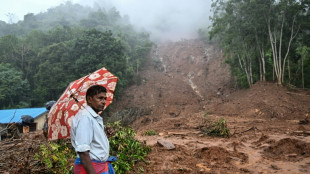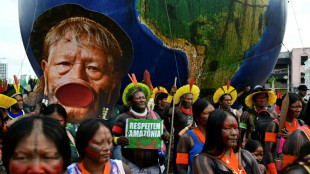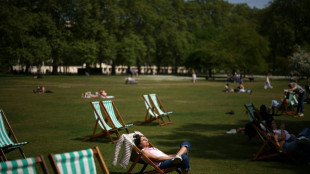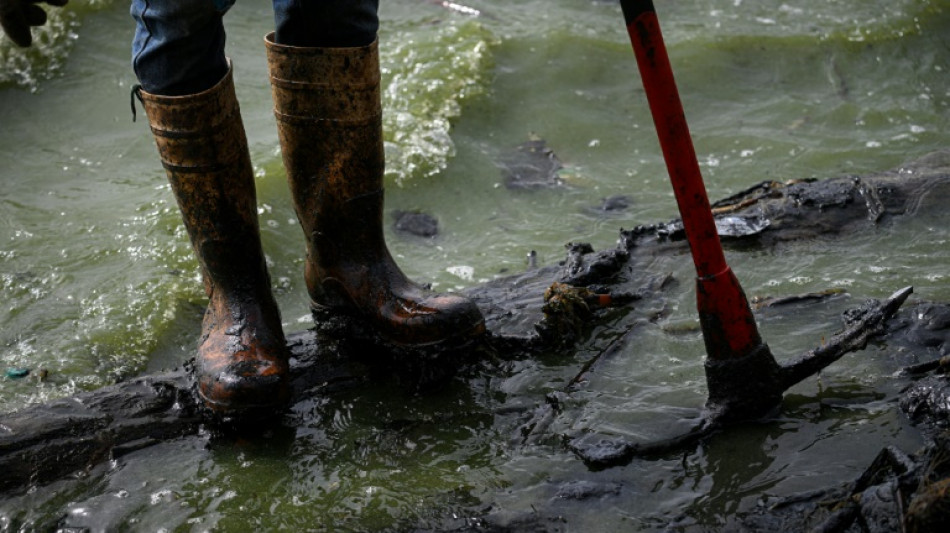
-
 French 'legend' Brigitte Bardot dead at 91
French 'legend' Brigitte Bardot dead at 91
-
French legend Brigitte Bardot dead at 91: foundation

-
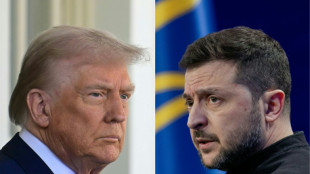 Zelensky looks to close out Ukraine plan in meeting with Trump
Zelensky looks to close out Ukraine plan in meeting with Trump
-
Multicultural UK town bids to turn page on troubled past
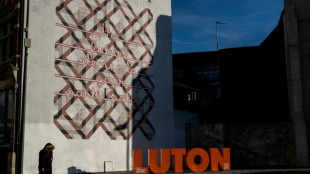
-
 'Unfair election': young voters absent from Myanmar polls
'Unfair election': young voters absent from Myanmar polls
-
Master Lock Comanche wins Sydney-Hobart ocean race for fifth time

-
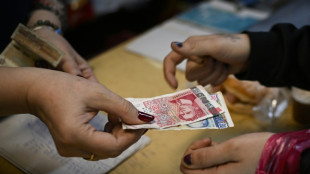 Bulgaria adopts euro amid fear and uncertainty
Bulgaria adopts euro amid fear and uncertainty
-
Giannis triumphant in NBA return as Spurs win streak ends

-
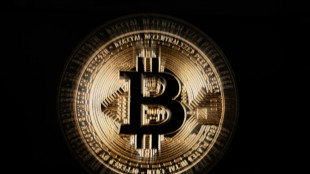 How company bets on bitcoin can backfire
How company bets on bitcoin can backfire
-
Touadera on path to third presidential term as Central African Republic votes
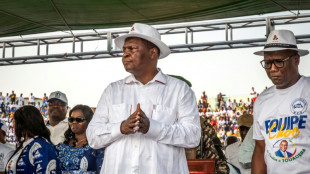
-
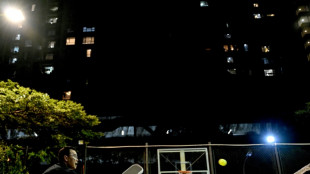 'Acoustic hazard': Noise complaints spark Vietnam pickleball wars
'Acoustic hazard': Noise complaints spark Vietnam pickleball wars
-
Iraqis cover soil with clay to curb sandstorms
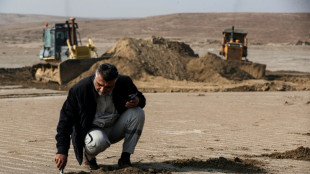
-
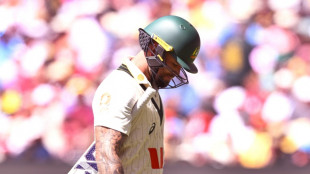 Australia's Head backs struggling opening partner Weatherald
Australia's Head backs struggling opening partner Weatherald
-
'Make emitters responsible': Thailand's clean air activists
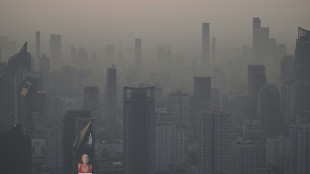
-
 Zelensky looks to close out Ukraine peace deal at Trump meet
Zelensky looks to close out Ukraine peace deal at Trump meet
-
MCG curator in 'state of shock' after Ashes Test carnage

-
 Texans edge Chargers to reach NFL playoffs
Texans edge Chargers to reach NFL playoffs
-
Osimhen and Mane score as Nigeria win to qualify, Senegal draw

-
 Osimhen stars as Nigeria survive Tunisia rally to reach second round
Osimhen stars as Nigeria survive Tunisia rally to reach second round
-
How Myanmar's junta-run vote works, and why it might not
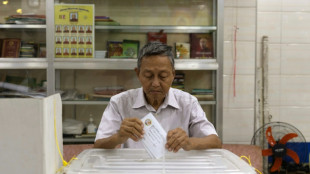
-
 Watkins wants to sicken Arsenal-supporting family
Watkins wants to sicken Arsenal-supporting family
-
Arsenal hold off surging Man City, Villa as Wirtz ends drought

-
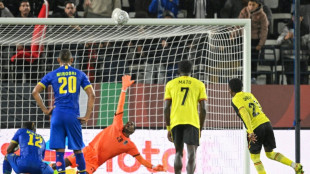 Late penalty miss denies Uganda AFCON win against Tanzania
Late penalty miss denies Uganda AFCON win against Tanzania
-
Watkins stretches Villa's winning streak at Chelsea

-
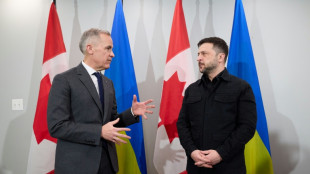 Zelensky stops in Canada en route to US as Russia pummels Ukraine
Zelensky stops in Canada en route to US as Russia pummels Ukraine
-
Arteta salutes injury-hit Arsenal's survival spirit

-
 Wirtz scores first Liverpool goal as Anfield remembers Jota
Wirtz scores first Liverpool goal as Anfield remembers Jota
-
Mane rescues AFCON draw for Senegal against DR Congo

-
 Arsenal hold off surging Man City, Wirtz breaks Liverpool duck
Arsenal hold off surging Man City, Wirtz breaks Liverpool duck
-
Arsenal ignore injury woes to retain top spot with win over Brighton

-
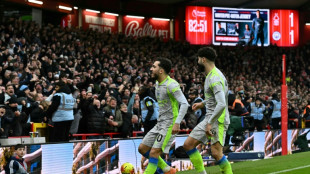 Sealed with a kiss: Guardiola revels in Cherki starring role
Sealed with a kiss: Guardiola revels in Cherki starring role
-
UK launches paid military gap-year scheme amid recruitment struggles

-
 Jota's children join tributes as Liverpool, Wolves pay respects
Jota's children join tributes as Liverpool, Wolves pay respects
-
'Tired' Inoue beats Picasso by unanimous decision to end gruelling year
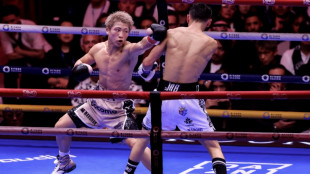
-
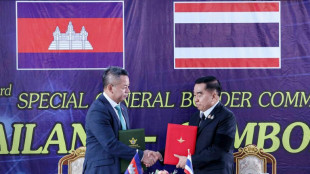 Thailand and Cambodia declare truce after weeks of clashes
Thailand and Cambodia declare truce after weeks of clashes
-
Netanyahu to meet Trump in US on Monday
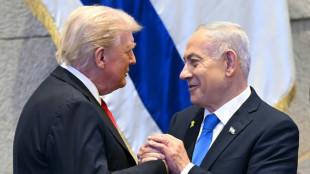
-
 US strikes targeted IS militants, Lakurawa jihadists, Nigeria says
US strikes targeted IS militants, Lakurawa jihadists, Nigeria says
-
Cherki stars in Man City win at Forest

-
 Schwarz records maiden super-G success, Odermatt fourth
Schwarz records maiden super-G success, Odermatt fourth
-
Russia pummels Kyiv ahead of Zelensky's US visit

-
 Smith laments lack of runs after first Ashes home Test loss for 15 years
Smith laments lack of runs after first Ashes home Test loss for 15 years
-
Russian barrage on Kyiv kills one, leaves hundreds of thousands without power

-
 Stokes, Smith agree two-day Tests not a good look after MCG carnage
Stokes, Smith agree two-day Tests not a good look after MCG carnage
-
Stokes hails under-fire England's courage in 'really special' Test win

-
 What they said as England win 4th Ashes Test - reaction
What they said as England win 4th Ashes Test - reaction
-
Hong Kongers bid farewell to 'king of umbrellas'

-
 England snap 15-year losing streak to win chaotic 4th Ashes Test
England snap 15-year losing streak to win chaotic 4th Ashes Test
-
Thailand and Cambodia agree to 'immediate' ceasefire

-
 Closing 10-0 run lifts Bulls over 76ers while Pistons fall
Closing 10-0 run lifts Bulls over 76ers while Pistons fall
-
England 77-2 at tea, need 98 more to win chaotic 4th Ashes Test


Oil-tainted lake a symptom, and symbol, of Venezuela's collapse
A putrid smell hangs over the black-stained shores of Lake Maracaibo in Venezuela, where an oil slick is emblematic of the steep decline in the country's once-enviable petroleum industry.
Here, much like elsewhere in what was once Latin America's richest country, economic hardship drives much of the discussion ahead of July 28 elections, in which President Nicolas Maduro will seek a third six-year term.
"We suffer. Fishing from the shore is no longer possible because of the oil," fisherman Yordi Vicuna, 34, told AFP, adding that catches have fallen tenfold.
He said nets must constantly be washed or replaced after being soiled by oil that leaks from decayed pipes which the government cannot afford to fix.
Much of Venezuela's economic collapse -- fueled partly by a sharp international drop in oil prices after 2014 -- has happened under the watch of Maduro, who has been in office since 2013.
Many Venezuelans -- including Vicuna -- blame US sanctions for the dire situation.
"The pipeline is damaged because of the (economic) blockade," the fisherman said, echoing the government's official line, as he and others shoveled oil-soaked sand from the lake shore.
"We ask the competent agencies, people from outside, to support the government in any way... to fix the pipelines," Vicuna added.
- Boom to bust -
More than a century ago, the hydrocarbon-rich Maracaibo Basin was the birthplace of a business that transformed Venezuela into one of the world's top 10 oil producers -- fueling a decades-long period of incredible prosperity.
The country, which has the world's largest proven oil reserves, was producing 3.5 million barrels of oil a day by 2008, with the United States as its main client.
But in just 12 years this dropped to fewer than half a million barrels following the nationalization of the industry and a crippling, months-long strike at state oil company PDVSA in protest against then-President Hugo Chavez.
Chavez sacked thousands of PDVSA staff and managers, who observers say were replaced mainly by non-expert loyalists.
As oil production dipped, Venezuela fell into an economic crisis marked by years of recession and hyperinflation that has seen an estimated seven million people -- almost a quarter of the population -- flee the country in just under a decade.
Most analysts blame the industry's rapid decline on corruption and inept management at PDVSA, worsened by the toughening of sanctions on Venezuela after Maduro's 2018 reelection, which was not recognized by dozens of countries.
- 'The lake is lost' -
A few oil pumps still operate on Lake Maracaibo's polluted shore, but dozens of machines stand idle.
The Puyuyo beach near the Bajo Grande refinery is black with oil. It was once a popular swim spot but most small hotels and bars here are now closed.
"People used to come here... Families came from all over to visit, eat fish and swim but now there are 30 centimeters (11.8 inches) of oil" on the bottom of the lake, said Guillermo Albeniz Cano.
The 64-year-old owns a beach cafe but has no clients. Instead, he barters rice and flour for the occasional fish or crab meat.
When AFP visited Puyuyo, only one table of the cafe was occupied -- by crabbers playing dominoes who said they would rather be working.
"Since there is a lot of oil in the lake, we could not go out today," said father-of-four Luis Angel Vega.
"Sometimes we don't eat for a whole day, the 26-year-old added.
His colleague Alvaro Villamil, 61, tried his luck nevertheless. On his boat "Carmen Rosa," he showed his catch of a few blue crabs he managed to get from the less-polluted center of the lake.
But it is not enough to make a living.
"It's hard... The lake is lost. There's a lot of oil," Villamil told AFP, his long-sleeved T-shirt stained with the stuff.
- 'For sale' -
Maracaibo was a flourishing city in the 20th century, with its colonial buildings, Art Deco theater and tramline.
Today, "for sale" signs on properties far outnumber election campaign posters, while tall grass and crumbling walls abound in the industrial zone.
Some 200 companies, including the German firm Siemens, once had a presence in the area. Today there are about 30.
Yet there are signs that Venezuela's oil fortunes may be looking up again.
Despite the renewal of sanctions after Maduro reneged on negotiated conditions for elections, Washington is allowing companies such as Chevron and Repsol to apply for individual licenses to keep operating in Venezuela.
And Oil Minister Pedro Tellechea said in May he was optimistic that Venezuelan oil production would reach a million barrels per day this year.
This will depend largely on what happens in next Sunday's vote, with widespread fear that Maduro will steal the election and unlock a new era of international pariahdom.
J.Williams--AMWN
